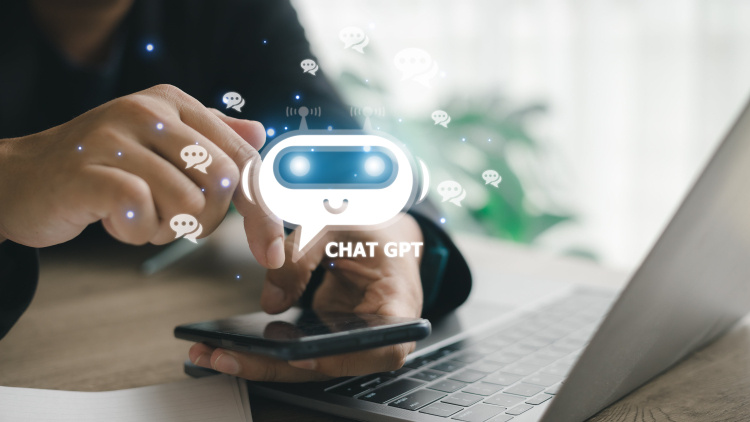- Gen AI
In the ever-evolving landscape of the corporate world, the role of HR has transcended beyond traditional responsibilities. Today, it's about fostering a culture of continuous learning, inclusivity, and innovation. With AI revolutionizing unified HR Excellence, organizations are not just streamlining processes but are also enhancing the overall employee experience. In this post, we'll explore the transformative impact of AI on HR, elucidate the benefits it brings, and highlight the tools that are driving this profound change.
What is Generative AI in HR, and Why Does it Matter?
Generative AI refers to systems that can generate new content or data that wasn't previously in their training set. In the context of HR, this means AI – powered tool in HR that can predict, analyze, and create solutions tailored to individual organizational needs. The importance lies in its ability to make HR functions more efficient, personalized, and proactive. From streamlining recruitment processes to enhancing employee onboarding, the applications are vast and transformative.
7 Key Impacts of AI on HR
- Data-Driven HR Decision-Making
With the influx of big data in HR, making sense of this information is crucial. Generative AI aids in analyzing this data, offering insights that lead to informed decisions. For instance, employee engagement and real-time information can be assessed to tailor strategies that boost morale and productivity. - Enhanced Talent Acquisition and Recruitment with AI
The traditional recruitment process can be time-consuming and often lacks precision. With AI, HR challenges in various sectors can be addressed by matching suitable candidates to job openings efficiently. Moreover, AI-powered chatbots are transforming the candidate's experience, making interactions seamless. - Personalized Employee Onboarding
First impressions matter. An effective onboarding process ensures that new hires integrate smoothly into the company culture. AI-driven systems, such as employee onboarding software, provide tailored training plans, ensuring a smooth transition for newcomers. - Predictive Analytics for Talent Management
Anticipating future HR challenges is a game-changer. AI algorithms, like those discussed in tackling the top 10 HR challenges with HONO HCM, can predict potential employee turnover, enabling HR teams to strategize retention methods effectively. - Performance Management and Feedback
Feedback is the cornerstone of growth. AI-powered systems, such as HCM software, provide real-time feedback, fostering a culture of continuous improvement.
- Incorporating Generative AI: The Way Forward
The journey of incorporating Generative AI into HR processes is filled with opportunities and challenges. While the benefits are manifold, it's crucial to approach AI with a balanced perspective. Ethical considerations, data privacy, and transparency should always be at the forefront. Our comprehensive guide on implementing AI provides a roadmap for organizations embarking on this journey. - Real-time Sentiment Analysis
Understanding employee morale in real-time can be a game-changer for HR. AI-driven surveys and sentiment analysis tools, like those discussed in our blog on employee engagement, can gauge the pulse of the organization, identifying potential issues before they escalate.
Learning and Development: The Future is Personalized
Compliance and Risk Management: AI to the Rescue
In the intricate web of labor laws and regulations, ensuring compliance can be daunting. AI, with its ability to monitor and analyze vast amounts of data, can assist in ensuring adherence to these regulations. Furthermore, it can identify and mitigate HR-related risks, such as potential legal issues or policy breaches, as highlighted in our blog on HR challenges in various sectors.
As we wrap up our exploration into the transformative power of Generative AI in HR, it's essential to reflect on the broader implications of this technology. Beyond the immediate benefits and efficiencies, AI is reshaping the very ethos of HR, making it more empathetic, proactive, and data driven.
Must Read: Data-Driven Decision Making: The New Normal
Bonus Key Impact
Leveraging the Strength of Data
In the era of information, data has become as valuable as gold. Generative AI, with its unparalleled analytical capabilities, can sift through vast amounts of HR data to provide actionable insights. Whether it's talent acquisition strategies or workforce planning, HR professionals can now make decisions backed by data, ensuring optimal outcomes as discussed in our blog on data-driven HR strategies.
Also Read: The Future of HR: A Blend of Technology and Humanity
A Vision for Tomorrow
The fusion of AI and HR is not just about technology; it's about people. It's about creating workplaces where employees feel valued, understood, and empowered. With AI-driven tools, HR can craft personalized employee experiences, foster continuous learning, and build a culture of innovation and inclusivity.
Embracing Change: The Road Ahead
Change is the only constant, and in the world of HR, this adage holds true more than ever. As we stand at the cusp of a new era, embracing Generative AI will be pivotal for organizations aiming for unified HR excellence. The future is bright, and with AI by our side, the possibilities are limitless.
Final Reflections
The integration of Generative AI in HR is a testament to the endless possibilities of technology. But at its core, HR will always be about people. As we harness the power of AI, let's not forget the human touch that makes HR truly special. Here's to a future where technology and humanity coexist in harmony, propelling organizations to new heights of success.
Closing Thoughts
The integration of Generative AI into HR practices is not a mere trend; it's a revolution. From personalized learning experiences to real-time sentiment analysis, AI is setting the stage for a more human-centric HR approach. As we gear up for the future, embracing AI will be pivotal for organizations aiming for unified HR excellence.
The integration of Generative AI in HR is not just about automation; it's about amplifying human potential. As we've explored, the benefits are manifold, from predictive analytics to personalized onboarding. As the HR landscape continues to evolve, embracing AI will be pivotal for organizations aiming for unified HR excellence. For further insights on the transformative power of AI in HR, explore our comprehensive blog.
Step Ahead with HONO.AI
In the dynamic world of HR, adapting to the latest technologies and methodologies is crucial. As we've discussed the many ways Generative AI is reshaping HR, it's essential to find a reliable partner to guide you through these changes. That's where HONO comes into play.
HONO is more than just a platform; it's a vision for the future of HR. We understand the intricacies of integrating AI into HR practices and offer solutions that are both state-of-the-art and user-friendly. Whether you're aiming to improve talent acquisition, boost employee engagement, or streamline HR operations, HONO stands by your side.
Why Wait? Experience the Future Today!
The benefits of AI in HR are here and now. And you can be a part of it. Feel free to schedule a demo with us. Get a firsthand look at our platform, ask questions, and learn how HONO can set a new standard for your HR strategies.
Request a Demo Now!
Our Latest Resources
Frequently Asked Questions
AI streamlines recruitment by analyzing job descriptions and candidate resumes, ensuring a precise match. Additionally, AI-powered chatbots enhance the candidate's experience by scheduling interviews and answering queries.
Yes, AI algorithms can analyze various data points to predict potential employee turnover, allowing HR teams to implement retention strategies proactively.
AI-driven onboarding processes offer personalized training plans for new hires, ensuring smooth and efficient integration into the company.
AI-powered systems provide real-time feedback based on an employee's work, promoting continuous improvement and growth.
While automation is a significant aspect, AI in HR is also about enhancing processes, personalizing experiences, and making data-driven decisions.

.png?width=50&height=50&name=Team%20HONO%20logo-01%20(1).png)



